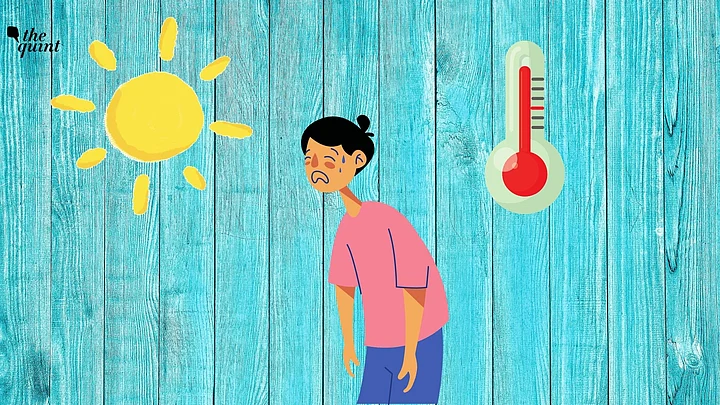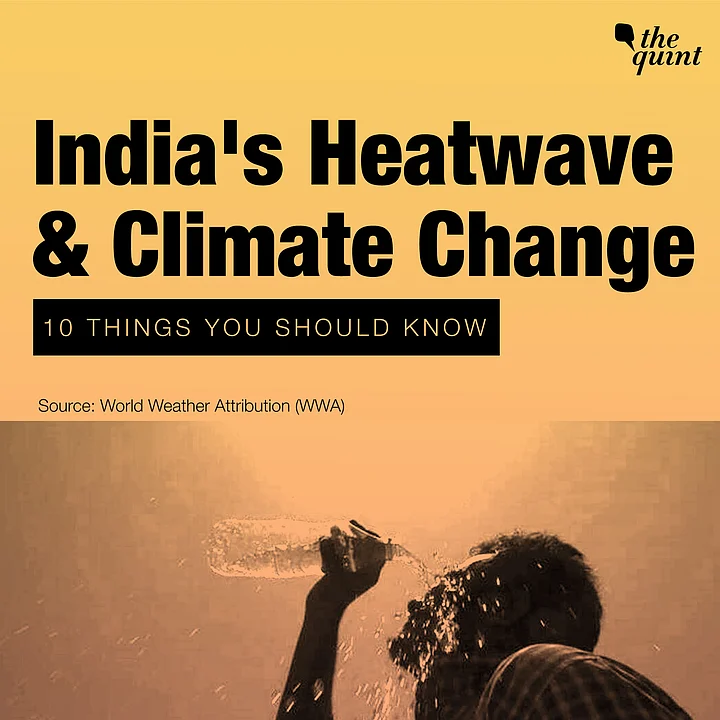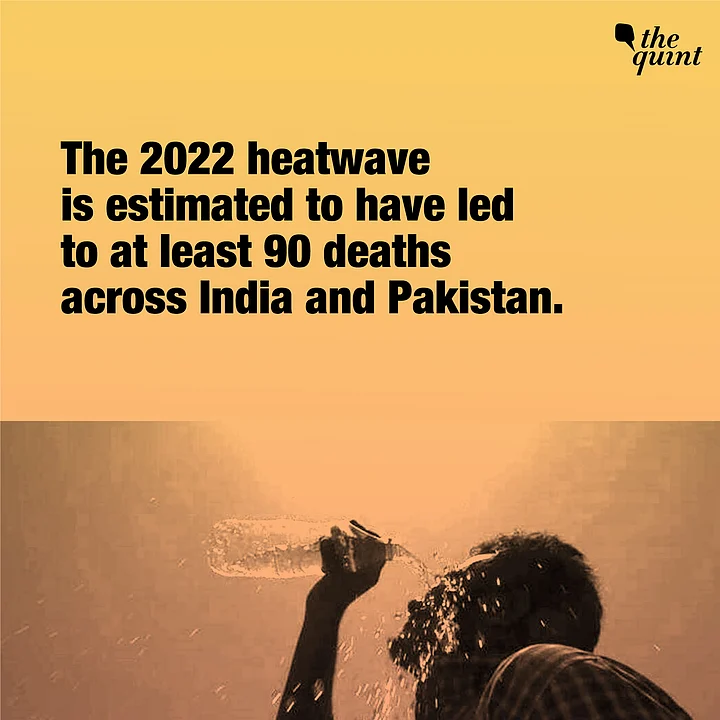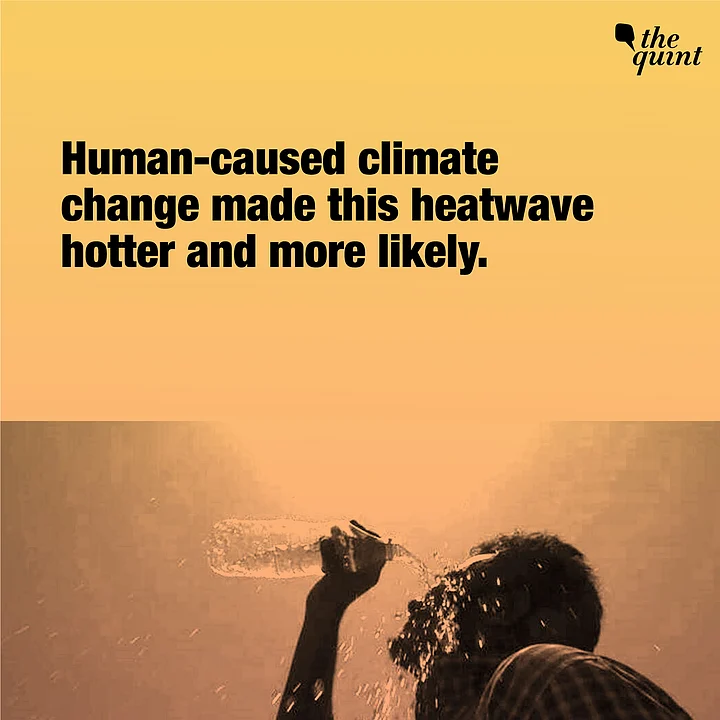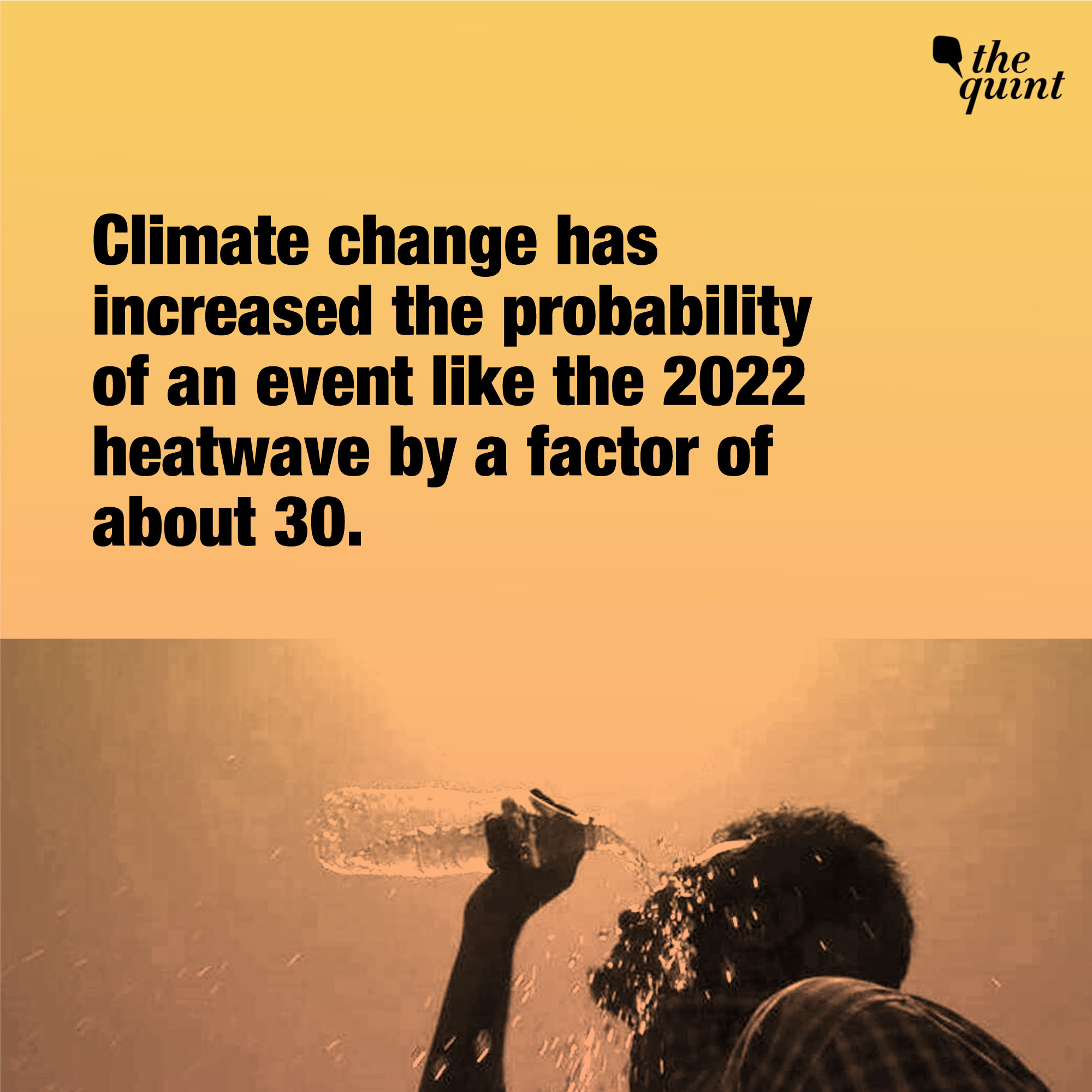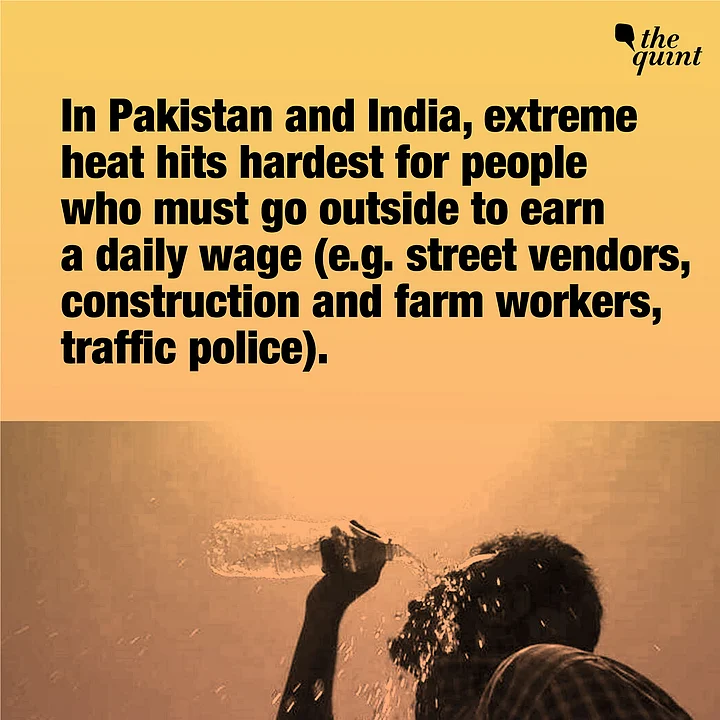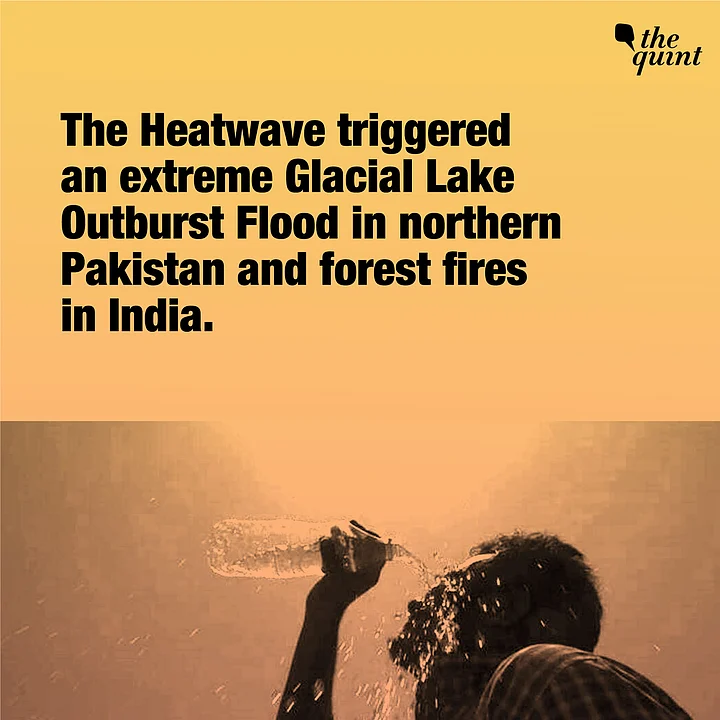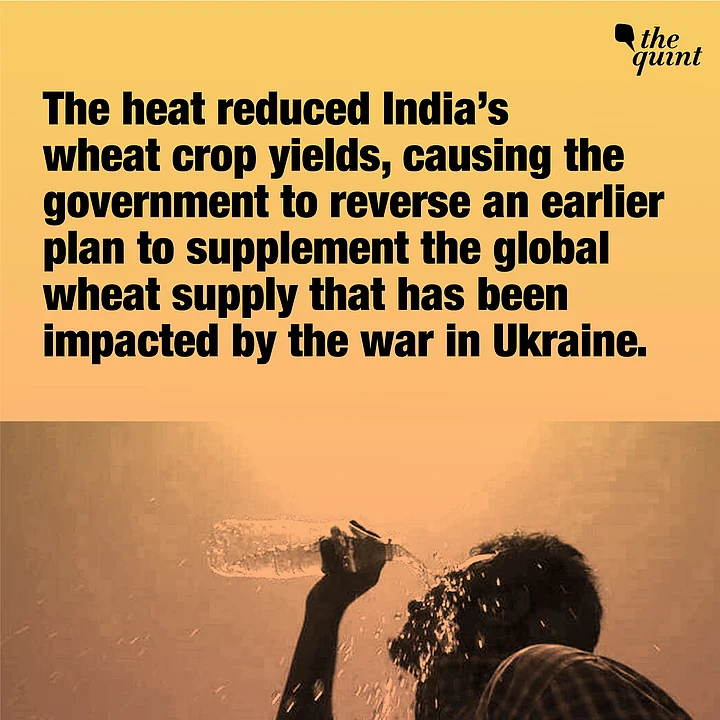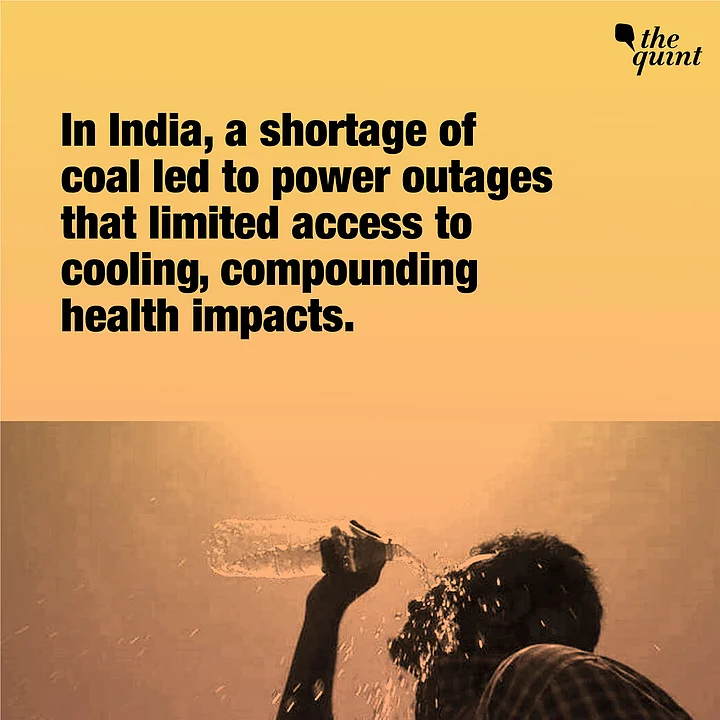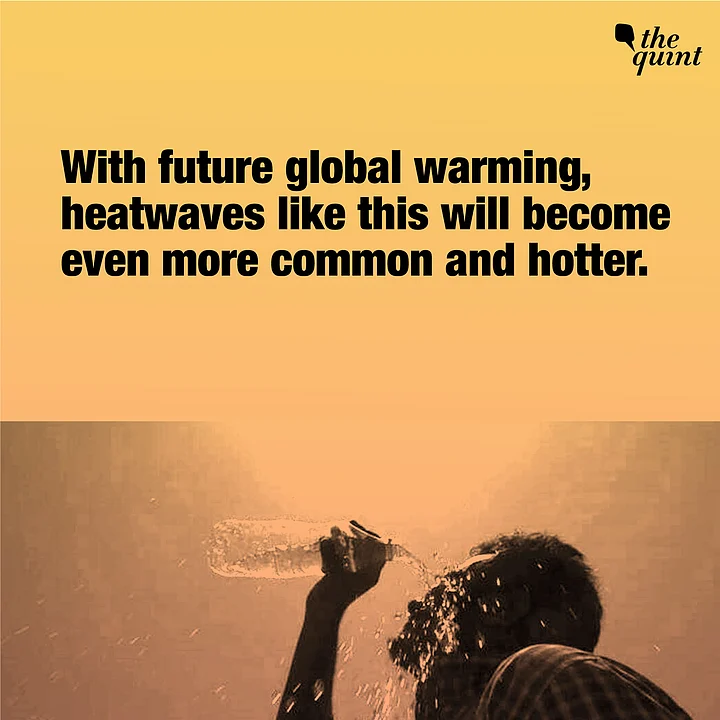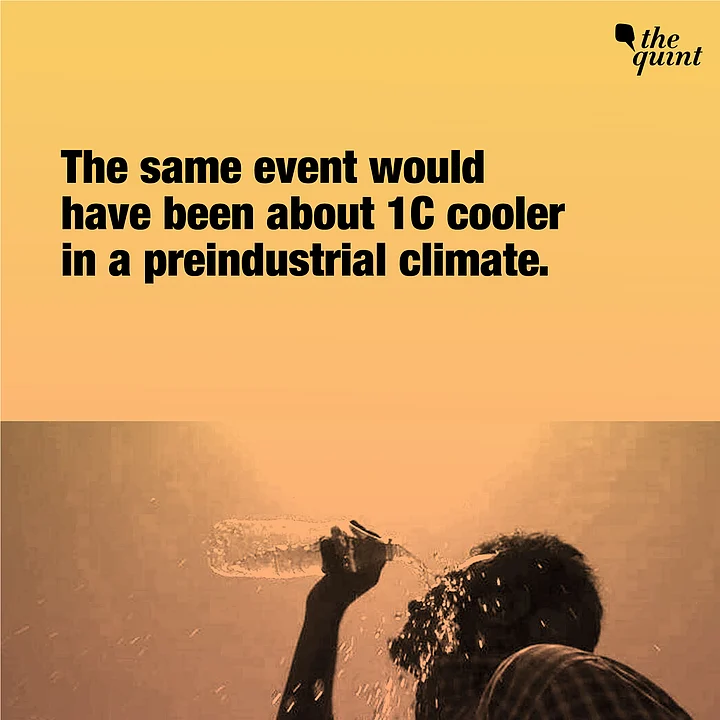Parts of India and Pakistan experienced harsh heatwaves in early March which broke several records.
"The long-running heatwave in India and Pakistan, which has caused widespread human suffering and hit global wheat supplies, was about 30 times more likely to happen because of human-caused climate change."
This is according to an attribution analysis done by World Weather Attribution (WWA) an international collaboration that analyses and communicates the possible influence of climate change on extreme weather events.
March was the hottest in India since records began 122 years ago, with Pakistan also seeing record temperatures; the heatwave intensified in April. At least 90 people have died as a result of the heatwave, "a toll that will almost certainly increase substantially with more reporting," said the report.
“High temperatures are common in India and Pakistan but what made this unusual was that it started so early and lasted so long. Across much of both countries, people had little relief for weeks on end, with the costs particularly high for hundreds of millions of outdoor workers. We know this will happen more often as temperatures rise and we need to be better prepared for it.”-Prof Krishna AchutaRao, Centre for Atmospheric Sciences, IIT Delhi
March was also extremely dry, with 62% less rain than normal over Pakistan and 71% below normal over India, said the report.
The early onset of the heatwave, combined with the lack of rain, hit India’s wheat production. Consequently, the Indian government announced a ban on wheat exports, further increasing global prices, by 6%.
India had previously expected to export a record 10 million tons of wheat, which would have helped make up for the shortfall caused by Russia’s invasion of Ukraine
“This heatwave, fuelled by climate change, is directly increasing food prices. India had planned to export record volumes of wheat this year, in response to the shortfall from Ukraine. Now, because of an event fuelled by climate change, most of those exports have been cancelled, pushing up global wheat prices and increasing hunger worldwide”.-Prof Robert Vautard, Institut Pierre-Simon Laplace, CNRS, Sorbonne Université
Ten Major Highlights of The Report
The 2022 heatwave is estimated to have led to at least 90 deaths across India and Pakistan.
It triggered an extreme Glacial Lake Outburst Flood in northern Pakistan and forest fires in India.The heat reduced India’s wheat crop yields, causing the government to reverse an earlier plan to supplement the global wheat supply that has been impacted by the war in Ukraine.
In India, a shortage of coal led to power outages that limited access to cooling, compounding health impacts and forcing millions of people to use coping mechanisms such as limiting activity to the early morning and evening.
Human-caused climate change made this heatwave hotter and more likely.
Because of climate change, the probability of an event such as that in 2022 has increased by a factor of about 30.
The same event would have been about 1C cooler in a preindustrial climate. (Preindustrial climate would mean the global temperatures before the industrial revolution which were 1.1 C cooler than today.)
With future global warming, heatwaves like this will become even more common and hotter.
In Pakistan and India, extreme heat hits hardest for people who must go outside to earn a daily wage (e.g. street vendors, construction and farm workers, traffic police), and consequently lack access to consistent electricity and cooling at home, limiting their options to cope with prolonged heat stress.
Rising temperatures from more intense and frequent heat waves will render coping mechanisms inadequate as conditions in some regions meet and exceed limits to human survivability.
Impacts are inevitable can be reduced, avoided. Adaptation to extreme heat can be effective at reducing mortality. Heat Action Plans and supportive public services can reduce mortality.
